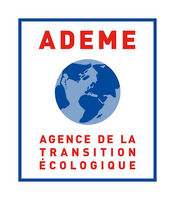Search eceee proceedings
Industrial clusters as agents of change? Results from a rapid evidence assessment
Panel: 9. Deep decarbonisation of industry
Authors:
Imogen Rattle, United Kingdom
Peter Taylor, University of Leeds
Abstract
This paper presents the results of a rapid evidence assessment of the approaches being used internationally to drive the decarbonisation of industrial clusters and critically assesses the role of industrial clusters as agents of change. Industrial activity accounted for 26% of global CO2 emissions in 2020 and substantial reductions are required to meet climate targets. One pathway for change is to prioritise interventions into areas of energy intensive industry, or clusters. Clusters have the potential to accelerate industrial decarbonisation in a variety of ways. Co-location of new infrastructure reduces upfront investment, offers economies of scale and de-risks development by providing a broad customer base. Geographical proximity offers the potential for stakeholders to investigate opportunities for industrial symbiosis. The networks built through regional specialisation have the potential to stimulate learning and innovation and generate knowledge spill-overs, delivering new technological breakthroughs.
However, these outcomes are not certain. A significant amount of literature points to the potential for industrial clusters to lead on the decarbonisation of industry, however many cluster decarbonisation initiatives are recent and empirical data are lacking. Studies drawn from economic geography suggest different places have different capabilities to engage with change and that historical context is often the key factor. Agglomerations of mature industries may lead to technological and political lock-ins which impede progress rather than accelerate it. The potential for clusters to act as pathfinders for broader industrial decarbonisation initiatives is therefore unclear. Nor is it apparent which configuration of policies, technologies, sectors and actors might best support this work.
This paper presents the results of a rapid evidence assessment on industrial cluster decarbonisation. It finds that studies on industrial decarbonisation clusters presently focus upon techno-economic assessments of the feasibility of CCUS and hydrogen deployment and neglect the importance of non-technical factors such as leadership, vision and strong networks which have historically been noted as key determinants of cluster success. It provides an overview of emerging exemplar clusters, including an overview of the range of approaches to funding; governance and integration with broader decarbonisation initiatives; alongside an assessment of the contextual information which may have influenced the ways these cluster have evolved. It notes that work to date concentrates on flagship projects in coastal clusters in North-West Europe and North America and argues that while these places are significant sources of industrial emissions, the lessons learned may have limited relevance for inland and dispersed industrial sites. It concludes that if clusters are to have a role as agents of change then a holistic approach incorporating a range of abatement approaches should be integrated into their strategies.
Downloads
Download this presentation as pdf: 9-231-22_Rattle_pres.pdf
Panels of
1. Dynamics of consumption: less is more?
2. Efficiency and beyond: innovative energy demand policies
3. Policy, finance and governance
4. Monitoring and evaluation for a wise, just and inclusive transition
5. Towards sustainable and resilient communities
6. Energy-efficient and low-carbon mobility for all
7. Policies and programmes for better buildings
8. Innovations in products, systems and building technologies



























